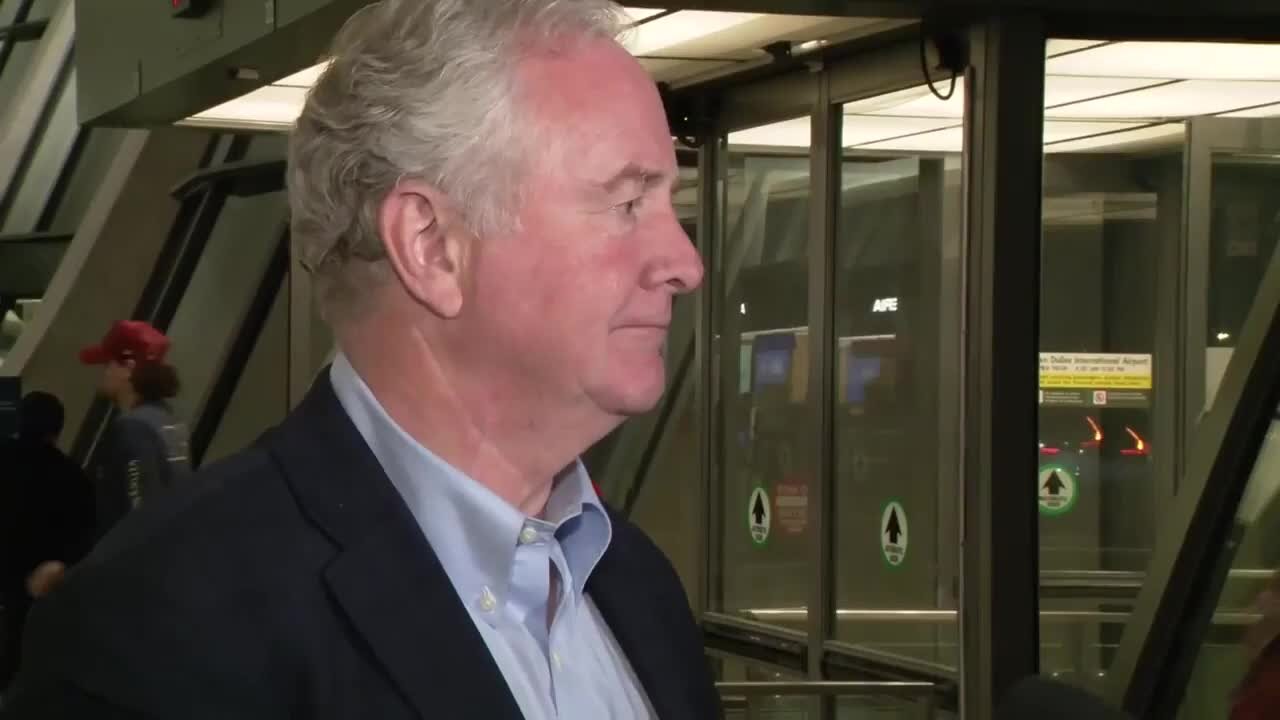Premium Only Content

Maryland Sen. Van Hollen Heads to El Salvador in Fight for Deported Father
Washington, D.C. – In an unprecedented move aimed at protecting the rights of American citizens and reuniting families, Maryland Senator Chris Van Hollen is heading to El Salvador to advocate for the return of a deported father. The case centers on a 29-year-old man who, despite being legally protected by a 2019 court order, was erroneously removed from the United States in March 2025 and sent to a high-security facility in El Salvador.
Background of the Deportation
The individual at the heart of the controversy is a father of several children living in Maryland, whose deportation was carried out by U.S. Immigration and Customs Enforcement (ICE) under what officials have described as an “administrative error.” Despite a longstanding protection order designed to shield him from removal—given that his return to El Salvador could expose him to gang-related violence—the man was sent to the Terrorism Confinement Center (CECOT) in El Salvador.
The government has defended the initial deportation by alleging connections to gang activity, a claim that his legal representatives and family vehemently deny. They insist that, as a father and contributor to his community, he deserves the full benefit of due process and the opportunity to defend his innocence in a fair judicial setting.
The Political and Legal Battle
The wrongful deportation has ignited heated debates across political and legal arenas:
Judicial Rulings and Legal Challenges:
Several federal judges have criticized the removal as a violation of due process. The Supreme Court recently intervened with a ruling directing federal agencies to “facilitate” the deported individual’s return, underscoring that a person protected by a court order should not be forcibly removed. Despite this, the administration continues to assert that the decision was grounded in national security concerns.
Response from El Salvador:
The controversy is compounded by the response of El Salvador’s government. President Nayib Bukele has publicly stated that he lacks the authority to return the man, famously questioning, “How can I smuggle a terrorist into the United States?” This firm stance has deepened the diplomatic tensions between Washington and San Salvador.
Senator Van Hollen’s Stand:
Citing the sanctity of family and the rights guaranteed under the U.S. Constitution, Sen. Van Hollen argues that no father should be denied the chance to return to his home and reunite with his family because of bureaucratic mistakes. “This isn’t just about one man—it’s about the principle that every American parent deserves the due process and opportunity to be with their family,” he stated. His determination to fly to El Salvador signals a willingness to use every available political tool to press for a resolution.
Significance of the Visit
Sen. Van Hollen’s upcoming trip is seen as a symbolic and practical effort to:
Reunite a Family: By personally visiting the detention facility, the senator hopes to assess the conditions under which the man is being held and to use his findings to push for immediate corrective action so that the father can safely return home.
Set a Precedent: The case is drawing nationwide attention to the flaws in the current U.S. immigration system. Advocates argue that if such administrative errors are allowed to continue unchecked, many American families could suffer similar fates.
Elevate the Debate on Immigration Reform: The incident underscores the need for comprehensive reforms that not only secure the nation’s borders but also protect the civil rights of those living within them. Lawmakers from both sides of the aisle are closely watching developments in the case, which could prompt broader legislative action.
Conclusion
The battle to return a deported father has transcended a single case of bureaucratic error—it has become a rallying cry for protecting constitutional rights and reuniting families affected by flawed immigration practices. With Sen. Van Hollen’s personal intervention looming, both U.S. and Salvadoran officials face mounting pressure to resolve the crisis swiftly and humanely.
-
 LIVE
LIVE
Geeks + Gamers
1 hour agoGeeks+Gamers Play- MARIO KART WORLD
122 watching -
 25:12
25:12
Jasmin Laine
7 hours agoDanielle Smith’s EPIC Mic Drop Fact Check Leaves Crowd FROZEN—Poilievre FINISHES the Job
3.68K13 -
 LIVE
LIVE
ZWOGs
10 hours ago🔴LIVE IN 1440p! - SoT w/ Pudge & SBL, Ranch Sim w/ Maam & MadHouse, Warzone & More - Come Hang Out!
42 watching -
 LIVE
LIVE
This is the Ray Gaming
8 minutes agoI'm Coming Home Coming Home Tell The World... | Rumble Premium Creator
57 watching -
 LIVE
LIVE
GrimmHollywood
9 hours ago🔴LIVE • GRIMM HOLLYWOOD • GEARS OF WAR RELOADED CUSTOMS • BRRRAP PACK •
40 watching -
 1:13:28
1:13:28
Glenn Greenwald
3 hours agoGlenn Takes Your Questions on the Minneapolis School Shooting, MTG & Thomas Massie VS AIPAC, and More | SYSTEM UPDATE #506
99.4K32 -
 LIVE
LIVE
RCAM
19 minutes agoLIVE | Trans Shooter Who Targeted Christians | Premium Creator
31 watching -
 LIVE
LIVE
Spartan
4 hours agoMaybe finishing Expedition 33, then back to Halo Grind
27 watching -
 LIVE
LIVE
Armadillofather
3 hours agoEspionage Action in the Den! | Metal Gear Solid Delta | You being here means so much!
93 watching -
 11:14
11:14
China Uncensored
7 hours agoThis Is NOT What China Wanted To Happen
3.67K5